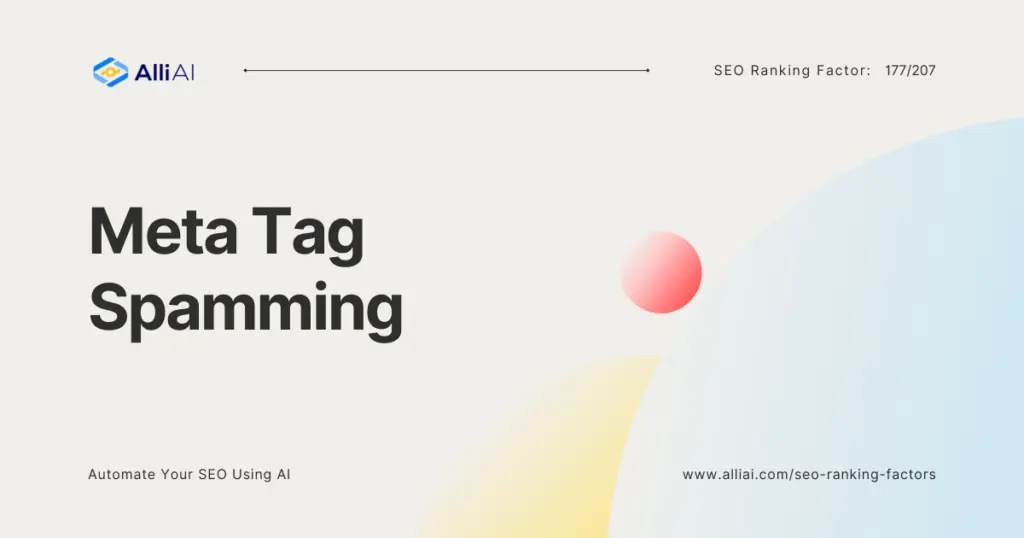Understanding Meta Tag Spamming
Meta tag spamming involves manipulating meta tags (HTML code designated to provide metadata about a web page) with irrelevant keywords to deceive search engines into granting the page a higher ranking than it deserves. It’s akin to cramming your resume with buzzwords unrelated to the job you’re applying for, hoping to catch the employer’s eye despite not having the relevant experience.
Why is Meta Tag Spamming Important in SEO?
In the early days of SEO, meta tags held significant sway in determining a webpage’s ranking. However, as search engines evolved, their algorithms became more sophisticated, devaluing the impact of meta tag spamming. Today, it remains a critical issue because it represents an attempt to game the system, and search engines like Google have implemented penalties for such practices. Ensuring your SEO strategy eschews meta tag spamming is vital for maintaining the integrity and ranking of your website.
How Meta Tag Spamming Affects SEO
Meta tag spamming can initially appear to offer a shortcut to higher rankings. However, the long-term effects are detrimental. Search engines may penalize your site by lowering its rank or removing it from search results altogether. Furthermore, even if users land on your site via inflated rankings, the mismatch between their expectations and your content may increase bounce rates, further harming your SEO performance.
According to Moz, meta tags still play a role in SEO, but their abuse can lead to penalties. Google’s algorithms continuously evolve, aiming to reward high-quality content that genuinely serves user intent.
How Can Alli AI Help With Meta Tag Spamming?
Here at Alli AI, we understand the nuances of SEO and the temptation to resort to quick fixes like meta tag spamming. However, we strongly advocate for and facilitate long-term, sustainable SEO strategies. Our tool analyzes your website’s metadata, identifying and suggesting optimizations that align with best practices. By focusing on relevance and quality, we ensure that your site attracts the right audience organically.
We created Alli AI to empower website owners to improve their SEO ethically and effectively. With our insights, you can refine your meta tags to accurately reflect your content, enhancing your search engine rankings legitimately.
FAQ
How can I identify if my site has been penalized for meta tag spamming?
You might notice a sudden drop in traffic or a lower ranking on search engine results pages. Tools like Google Search Console can also notify you of manual penalties applied to your site.
What is the best practice for using meta tags?
Focus on accuracy and relevance. Your meta tags should accurately describe the content of your pages and include relevant keywords naturally. Avoid stuffing irrelevant keywords into your tags.
Can meta tag spamming permanently damage my site’s SEO?
While penalties can significantly impact your site’s visibility, they are not always permanent. By correcting the spammy practices and following ethical SEO strategies, you can restore your site’s standing with search engines.
Conclusion
Meta tag spamming is an outdated and harmful SEO technique that can jeopardize your website’s credibility and ranking. As search engines become more adept at detecting and penalizing such practices, it’s crucial to focus on ethical SEO strategies that genuinely improve user experience and site quality. At Alli AI, we’re committed to guiding our clients towards sustainable SEO success, helping them optimize their meta tags and overall site content to achieve lasting, organic growth. By embracing honesty and integrity in your SEO efforts, you will build a website that not only ranks well but also truly deserves its spot at the top.






